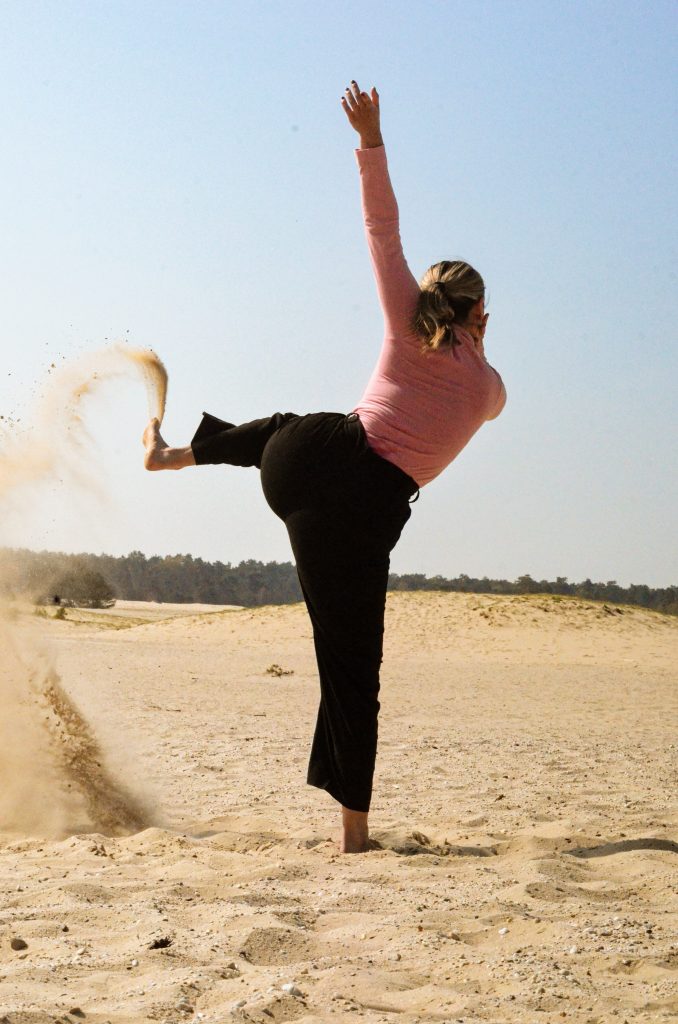Have you forgotten how to play? Or do you suppress your need to play because you find yourself living within the belief system that adults should not goof around? What are the benefits of playfulness that you are missing out on in your adult life? Playing is in fact an important and crucial part of our expression and aliveness, and making play a daily practice is only beneficial for you.
Playing is liberating. Playing frees us from limitation, rigidity, self-judgement, and from our inner critic. Adulthood and seriousness takes the fun out of life and leaves us very disconnected from who we truly are.
It is usual for adults to participate in very serious forms of movement, and exercises that emphasises performance and goals, which is the mindset of work culture as well. But that kind of exercise does not allow for the playful side, or the child in you, to express itself.
Why a playful life is important
Are you aware of the importance of living a playful life? How do you respond when you imagine yourself carving out the time for play? Does it feel uncomfortable in your body; is your body rejecting the idea? Or does your body find it intriguing, wanting to play; does your body feel open and curious to explore playfulness?
Playing and exploring is a natural state that adults tend to lose touch with. Let your intuition show you how to play. Expand your range of play and playfulness. What would that look like for you? Or do you find the thought foreign, as if your playfulness has been blocked or forgotten almost?
How can you wholeheartedly play when you have invested so much time and energy in your adult professional appearance? And will playfulness destroy the mask you wear to fit into your adult environment, whether that is a corporate job or a culture that celebrates and respects people who invest in them keeping up appearances?
Does play mean that you lose face and won’t be taken seriously or be respected anymore in your circles? You might find that it is the other way around.
Benefits of play for adults
Play fosters lightness, mental health, creativity and growth. Play grabs you out of your head and gets you into the body and into the moment of enjoyment. When we don’t play, which is normal for the majority of adults, we live our lives through our thinking state, through our thoughts, beliefs, and personal perception, trying to control outcomes, and get uptight.
Can you recognise that you want to explore your playfulness and what that does to your embodiment and your lifestyle?When we play we allow ourselves to let go of rigid and uptight behaviour, which in turn allows for our perception of our environment to change.
Play impacts our behaviour and how we relate to stressors, hence, a playful person is more likely to flow in stressful situations, instead of getting angry or frustrated. Being flexible and able to improvise lets you adapt to new circumstances.
Play brings out creativity and resilience
Play brings out innovative ideas in us, and makes us creative. Play helps us to stay curious about life. Play builds resilience, and keeps our brain flexible and adaptable. When we don’t play, our perception narrows, we can collapse emotionally, and experience anxiety.
Knowing how to play allows us to bring play and laughter into our relationships and routines on a regular basis. It affects how you parent, run a business, communicate, listen, solve problems, and wake up in the morning.
To quote psychologist Annie Brooks in Awakening the Creative Mind: “Learning to play, and to improvise, is a part of natural intelligence and can return joy, a sense of family as a team, and support creative problem solving.”
Explore playfulness through dance
In Meditative Dance we use playfulness as a door to the exploration of our inner being. Meditative Dance cultivates listening to our true self and accepting who we are in that moment. Through intuitive movement and embodied expression of emotion, we gain emotional insight and body awareness.
If you think that dance is not for you, you might be wrong. Performing coordinated choreography is one thing, but moving freely to the rhythms you have within you is ancestral knowledge that we all carry within us. As a meditative embodiment practice, dancing has nothing to do with performance or looking good.
We all dance, we all know how to move our bodies to express our emotions and feelings. When we allow ourselves to listen within, to sense and feel, we can dance through following impulse and emotion. You know how to do that, because it is your body’s natural expression.
When we feel that we are not able to play it is most often connected to the fear of how others might perceive us, or judge us. Can you remember the moment in your life when you stopped playing? Have you tried to devote some time now in your adult life to play? What is play for you, and what do you wish it would be? Let me know.

Paluuviite: How to connect to your body - ME EMBODIED